江啟明博士
學術簡介
江啟明博士現任香港中文大學通識教育辦公室高級講師,同時亦為計算機科學及工程學系的兼任講師。他主要教授通識教育基礎課程「與自然對話」、大學核心課程「數碼素養及計算思維」及敬文書院的「專題討論」。
江博士的學術研究興趣橫跨工程學及通識教育兩大學術範疇,包括人工智能、機器人與自動化、金融工程、學習分析、科學教育、科學史與哲學、通識教育經典。
江博士在2007年首次加入中大並於機械與自動化工程學系任職一級導師,其後也曾擔任香港理工大學教學研究員 (2011–2012)。加入大學工作之前,他曾在Invensys Process Systems(2000–2002)和Provecta Process Automation(2006–2007)任職工程師。
江博士分別在2000年及2007年於澳大利亞新南威爾士大學獲取機電工程學士及博士學位。進行博士學術研究期間,他曾獲CRC-IMST頒發獎學金,並兩度獲得最優秀研究生獎。
任教科目
In Dialogue with Nature
Digital Literacy and Computational Thinking
Senior Seminar
Introduction to Robotics
Product Mechatronics
Automatic Control Systems
Dynamics and Vibrations
Thermodynamics
Advanced Engineering Mathematics
Engineering and the Environment
Engineering Design
Engineering Profession
著作選錄
- Kiang, Kai Ming, Wai Man Szeto. 2021. “ Teaching Traditional Chinese Science as a Part of a NOS Curriculum in Hong Kong”, Science & Education 30:1453–1472.
- Kiang, Kai Ming, Klaus Colanero. 2020. “A Classics Reading Approach to Nurture Epistemic Insight in a Multidisciplinary and Higher Education Context”, Science Education in the 21st Century: Re-searching Issues that Matter from Different Lenses, pp. 51-65, Singapore: Springer.
- Cheung, Derek Hang-Cheong, Andy Ka-Leung Ng, Kai-Ming Kiang and Hin-Yan Chan. 2020. “Creating a community of inquiry in the science classroom: an effective pedagogy for teaching diverse students?”, Journal of Further and Higher Education, (44)1, 1–13.
- Kiang, Kai Ming. 2019. “Nurturing Epistemic Insight via reading Science‐related Classics”, Proceedings of 15th International History, Philosophy and Science Teaching Conference, Thessaloniki, Greece.
- Chan, Hin-Yan, Chun-Yeung Lo, Andy Ka-Leung Ng, Derek Hang-Cheong Cheung, Kai-Ming Kiang. 2019. “Relation Between Interactive Learning and Prior Knowledge: Insights from a General Education Program of Science and Humanities”, Journal of General Education, vol.66, no.3-4, pp. 136-165, Penn State University Press.
- Kiang, Kai Ming, Derek Hang Cheong Cheung and Andy Ka Leung Ng. 2018. “Nurturing Epistemic Insight via reading Science‐related Classics”, Proceedings of International Science Education Conference 2018, Singapore.
- Kiang, Kai Ming, Hin-Yan Chan, Andy Ka-Leung Ng and Derek Hang-Cheong Cheung, 2016. “Effectiveness of Micro-Modules in a Science Classics Course”, American Journal of Educational Research. 4(13), 917-926.
- Ng, Andy Ka-Leung, Kai Ming Kiang and Derek Hang-Cheong Cheung. 2016. “Assessing Students’ Attainment in Learning Outcomes: A Comparison of Course-End Evaluation and Entry-Exit Surveys”, World Journal of Education, 6(3).
- Kiang, Kai Ming, Andy Ka-Leung Ng and Derek Hang-Cheong Cheung. 2015. “Teaching Science to Non-Science Students with Science Classics”, American Journal of Educational Research. 3(10), 1291-1297.
研究項目
- PI of TDLEG 2022-25 Evaluation of the Revision of the General Education Foundation Programme
- Co-I of TDLEG 2022-25 Further Development and Evaluation of the Core Courses on Computational Thinking and Digital Literacy
- PI of TDLEG 2019-22 Establishing an online learning community for UGFN1000
- PI of TDLEG 2019-22 Micro-modules to facilitate online learning and discussion
- PI of TDLEG 2016-19 Implementation and Evaluation of Commercial-Off The Shelf (COTS) Digital Game-Based Learning (DGBL) in Higher Education
- PI of CDG 2017-18 Adaptation of a simulation video game to enhance students’ achievement of learning outcomes in GEF
- PI of MMCDG 2017-18 (Scheme 2) Integration and enhancement of the existing micro-modules platforms for UGFN1000 classroom flipping
- Co-I of MMCDG 2017-18 (Scheme 3) A Comprehensive Analysis of Different Types of UGFN1000 Micro-modules: From Users’ and Developers’ Perspectives
- PI of MMCDG 2016-17 (Scheme 2) Micro-modules for UGFN1000 classroom flipping – part 2
- Co-I of MMCDG 2016-17 (Scheme 3) Roles of Micro-modules Implementation in a Blended Learning Environment of UGFN1000
- PI of MMCDG 2015-16 (Scheme 2) Micro-modules for UGFN1000 classroom flipping
- Co-I of MMCDG 2015-16 (Scheme 3) Effects and risks of micro-module implementation in UGFN1000
- PI of MMCDG 2014-15 Supplementary courseware for non-science students studying UGFN1000

